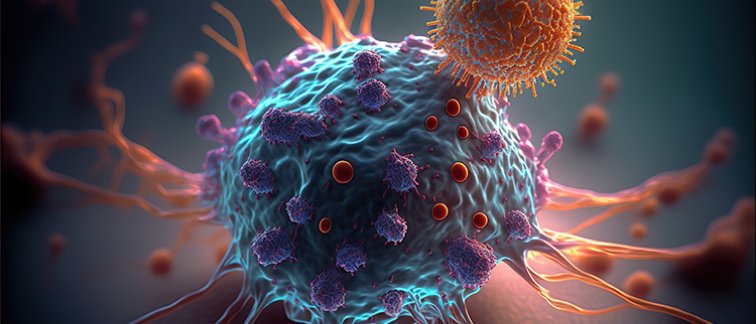Researchers at Cancer Center Amsterdam have uncovered an unexpected mechanism in pancreatic ductal adenocarcinoma (PDAC): tumor cells appear capable of autonomously producing estrogen. This locally produced hormone alters the stromal microenvironment and can slow tumor growth, opening up a potential new therapeutic avenue for this highly aggressive cancer. Their findings are published today in Cancer Research.
Sex-associated stromal differences
Detailed analysis of the tissue around the tumor r evealed clear sex-associated differences. Tumors in women contained more tumor-suppressive fibroblasts and displayed stiffer stromal tissue, these features were found to strongly associate with elevated intratumoral estrogen levels. These local hormone concentrations correlated with the more favorable treatment outcomes typically observed in female PDAC patients.
The researchers also found a discordance between estrogen levels in tumor tissue and in circulation. Nearly all patients showed markedly elevated estrogen within the tumor microenvironment, while systemic levels remained within the normal range.
A previously unrecognized hormone-mediated mechanism
But particularly striking was that follow-up experiments showed that PDAC cells themselves produce estrogen, suggesting a previously unrecognized mechanism by which tumor cells modulate their niche through local hormone signaling. The researchers propose that estrogen may influence stroma even in early, pre-malignant stages, promoting a matrix and fibroblast state that can restrict early tumor development. This hypothesis introduces a potential explanation for the sex differences in PDAC progression.
This study illustrates how serendipity can accelerate scientific progress, and how curiosity-driven research can ultimately translate into better patient care - PhD candidate Paul Manoukian
Implications for future research and therapy
According to principal investigator Maarten Bijlsma, the next steps include dissecting the mechanisms involved and exploring similar mechanisms in other cancers. The team also aims to leverage these insights to refine existing PDAC treatments. By distinguishing stromal subtypes and modulating intratumoral hormone production, the findings point toward more selective and potentially more effective stromal-targeted therapies, aligned with a broader push toward tailored cancer treatment.

